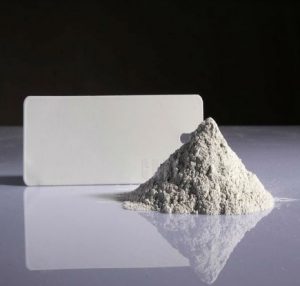When and How to Apply Multi-layer Powder Coating: Considerations and Best Practices

Powder coating is a popular surface finishing technique used in various industries due to its durability, cost-effectiveness, and environmental benefits. In some cases, a single coat may not provide the desired finish or protection, leading to the need for multi-layer powder coating. This article will delve into the situations that warrant multi-layer powder coating, key considerations, and best practices in achieving optimal results.
When to Apply Multi-layer Powder Coating:
- **Enhanced Protection:** When the substrate requires superior protection against corrosion, UV exposure, or chemical resistance, multiple coats of powder coating may be necessary.
- **Improved Aesthetics:** To achieve a specific color shade, texture, or gloss level that cannot be attained with a single coat, multiple layers of powder coating may be applied.
- **Thicker Coating:** In applications where a thicker coating is required for impact resistance or to hide imperfections on the substrate, multi-layer powder coating is essential.
Considerations for Multi-layer Powder Coating:
- **Compatibility:** Ensure that the different powder coatings used in each layer are compatible to prevent issues such as adhesion failure or color distortion.
- **Curing Time:** Allow sufficient time for each layer to cure properly before applying the next coat to prevent blistering, bubbling, or other defects.
- **Thickness Control:** Maintain consistent coating thickness across all layers to avoid uneven finish or potential performance issues.
- **Surface Preparation:** Properly prepare the substrate by cleaning, degreasing, and roughening the surface to promote adhesion between layers.
- **Quality Control:** Regularly inspect each layer for defects, such as pinholes or orange peel, and address them before applying subsequent coats.
Best Practices for Multi-layer Powder Coating:
- **Layer Sequence:** Follow the recommended sequence provided by the powder coating manufacturer to ensure optimal adhesion and finish.
- **Electrostatic Application:** Utilize proper equipment and techniques for electrostatic application to achieve uniform coverage and minimize material waste.
- **Curing Process:** Adequately cure each layer at the recommended temperature and duration to achieve maximum adhesion and durability.
- **Testing:** Conduct adhesion and performance tests on the multi-layer coating to verify its effectiveness in meeting the desired specifications.
Multi-layer powder coating is a versatile technique that offers enhanced protection, aesthetics, and functionality in various applications. By understanding the situations that necessitate multi-layer coating, considering key factors, and following best practices, manufacturers can achieve superior finish quality and durability in their coated products.

 D5 Creation
D5 Creation